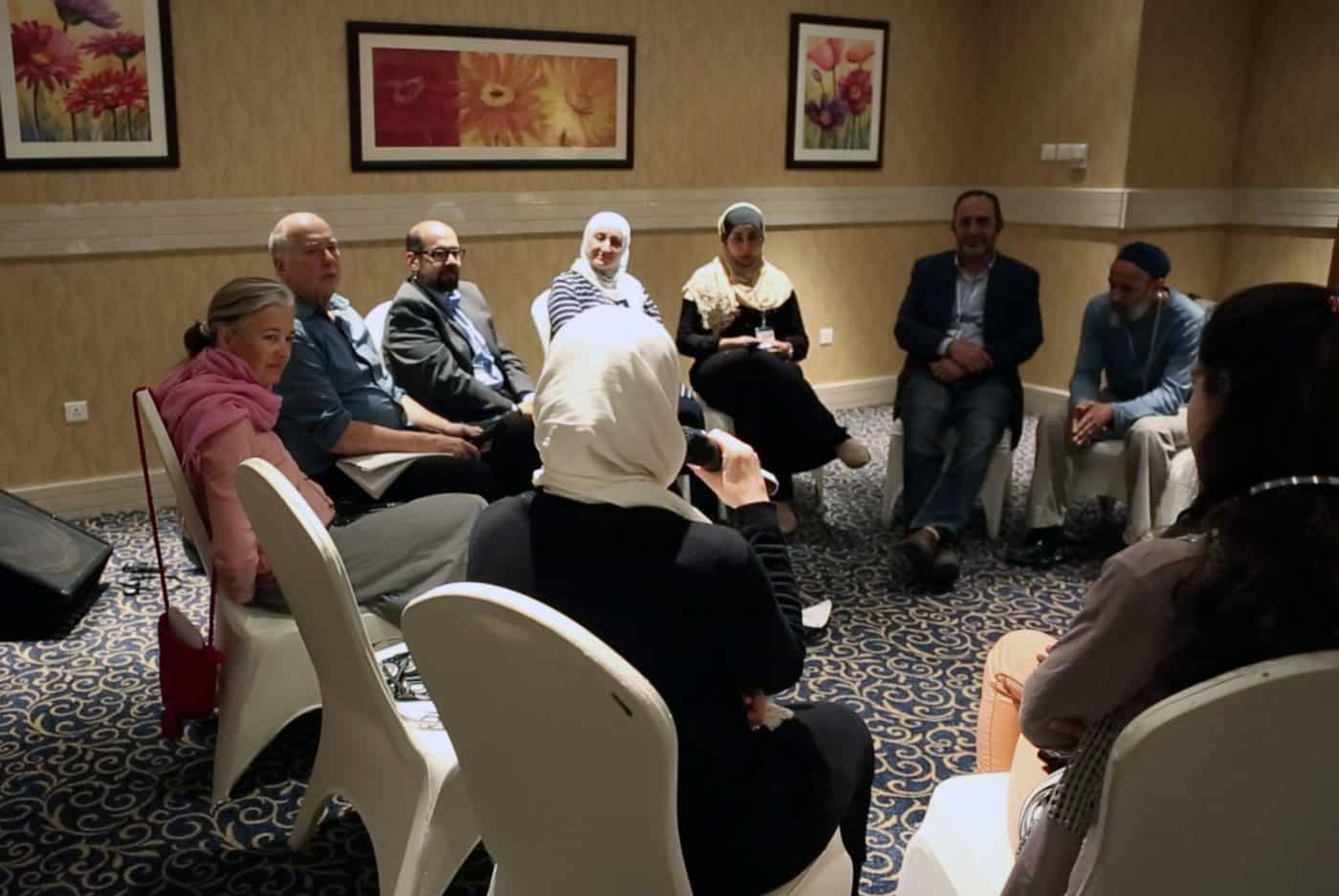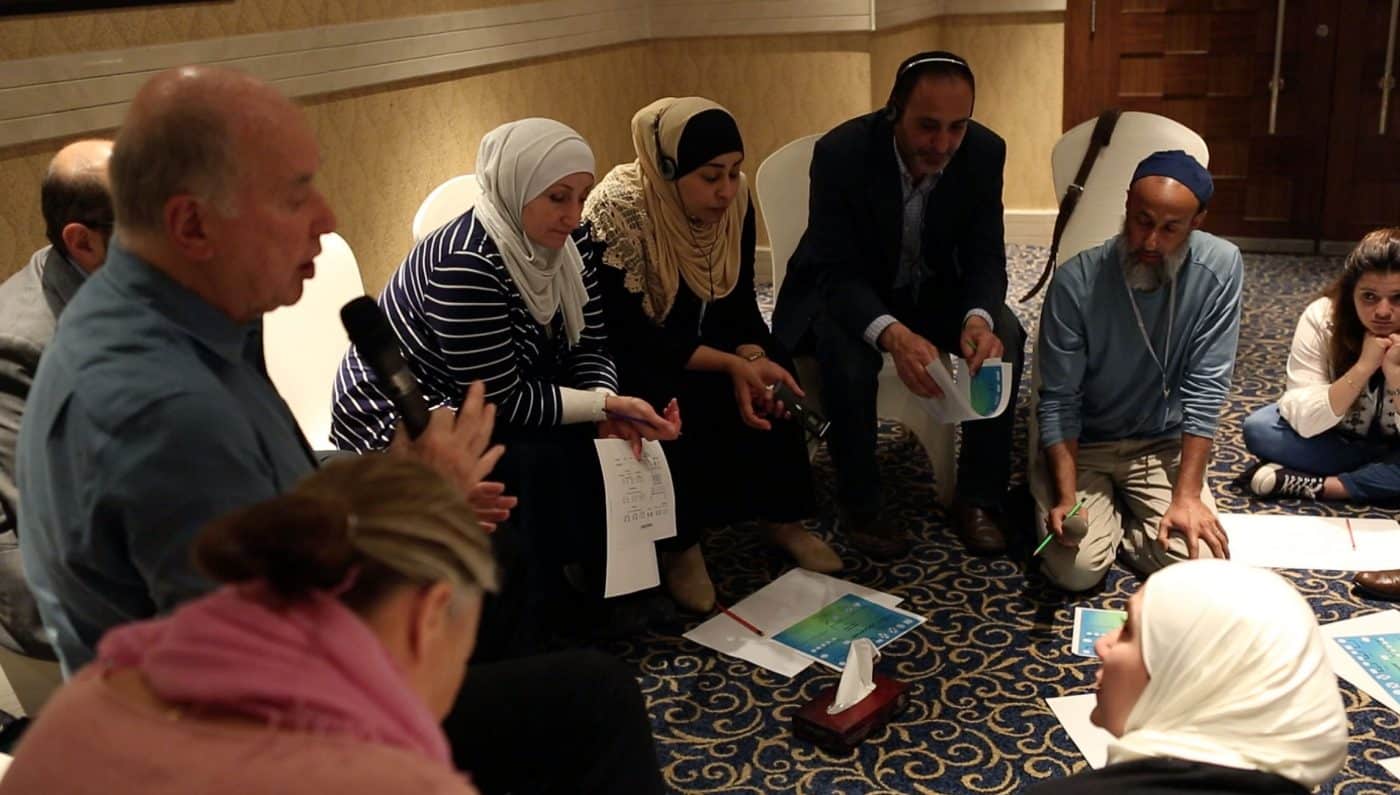Sadness pervades the first few small group sessions, the dark past casting a shadow on the present. A Syrian refugee feels his brother’s loss in each imaginative exercise, in every moment of quiet. A Palestinian aid worker, long out of Gaza, closes his eyes and sees a family home destroyed, tells us of lying in bed at night, the sound of a distant helicopter still vibrating angrily through his body, just as it did in Gaza. A young Iraqi woman feels pulled in a dozen different directions toward family members whom she cannot reach.

Meanwhile, the pictures of Jordanian aid workers are filled with endless to-do lists, stern clocks commanding ever more and ever-faster activity to meet the needs of the 1 million Syrians who have taken refuge in this country. Some hear parental voices condemning all acts and thoughts that are less than perfect. There’s a sense of urgency about the work that needs to be done and deep concern that they will not be up to the task.
Toward the end of the second day, a large group exercise—shouting “yes” and “no” at one another— brings up feelings of resistance and acquiescence, anger, and affirmation. Dancing the Debeke, a traditional line dance, after, we feel liberated. Laughter fills the room.

Part 3: Meditating and Finding Solutions


